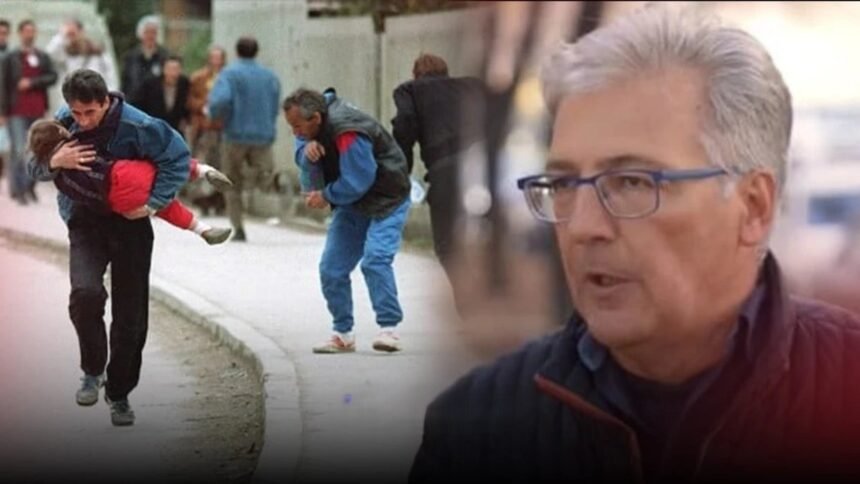Three decades after the brutal Siege of Sarajevo, Italian prosecutors have reopened one of the darkest and least-investigated chapters of the Bosnian War: the existence of so-called “weekend snipers” – wealthy foreigners who allegedly paid to shoot civilians for sport.
The revelations have resurfaced after Edin Subashić, a former intelligence officer of the Army of Bosnia and Herzegovina, shared new details with TRT Balkan regarding what he discovered during the war and what investigators in Italy are now probing.
Foreigners Paying to Kill Civilians
According to Subashić, Sarajevo’s surrounding hills—already known for Serbian sniper positions—had also become a hunting ground for foreign nationals with no connection to the conflict.
“They came from various European countries, mostly Italy, solely to shoot at Sarajevo’s citizens, turning murder into entertainment,” Subashić explained. Witness accounts describe these individuals as wealthy men, often professional hunters in their own countries, seeking “adrenaline experiences” in a war zone.
Key Testimony Confirmed the Presence of Italians
Subashić said the first confirmation came in late 1993 when a Serbian volunteer captured in Hrastno Brdo admitted that among Serbian volunteers and mercenaries he had seen Italians equipped with high-end hunting gear and advanced sniper rifles.
One Italian hunter from Milan reportedly paid to be transported to Grbavica, where he could fire into Sarajevo—calling the act a “hobby.”
Organized Transport Routes Uncovered
“UNPROFOR investigations, combined with Italian intelligence, revealed organized transport routes,” Subashić stated. These included vans, buses, flights to Hungary and then Serbia, and even military helicopters to Pale.
Italian authorities later claimed the routes had been shut down and the matter resolved—yet no transparent public accounting was ever conducted.
Vučić’s Name Reappears in the Debate
The phenomenon known as “Sarajevo Safari” has reignited broader discussions about Serbian wartime involvement. Regional human rights activists, including Sonja Biserko, insist that Aleksandar Vučić’s role during the war should not be shielded from scrutiny.
Vučić was politically active in the nationalist circles of the 1990s, and questions about his wartime presence in Sarajevo have resurfaced, especially following claims by Vojislav Šešelj that Vučić volunteered with a Serbian unit in the city.
While Vučić denies such involvement, the growing body of testimonies continues to challenge Serbia’s official narrative, adding new pressure on his government, which critics argue still avoids full historical accountability.
A Dark Chapter Reopened
“This dark episode of the Sarajevo siege is a painful reminder of the moral collapse that accompanied the conflict, and it raises new questions about the scale of crimes committed against civilians,” Subashić said.
The case resurfaced after journalist Ezio Gavazzeni filed a legal complaint in Milan, accusing Italian and other foreign nationals of paying members of Serb forces to access sniper positions and shoot civilians, an activity some have described as ‘sniper tourism.’
The Human Cost
The Bosnian War (1992–1995) claimed around 100,000 lives, with Sarajevo enduring one of the longest sieges in modern history.
The new investigation, if carried out thoroughly, may finally expose this horrifying dimension of the atrocities committed.







